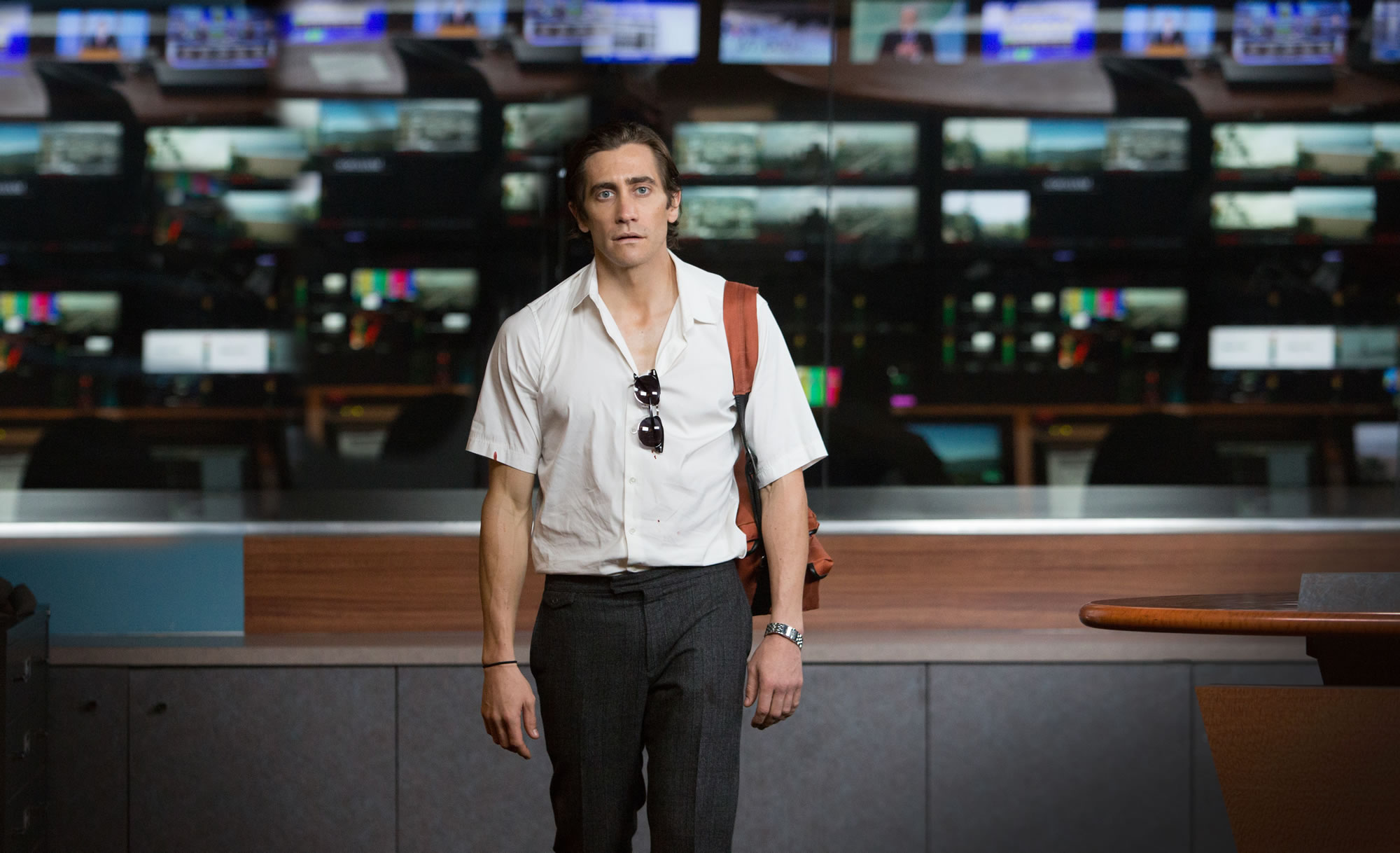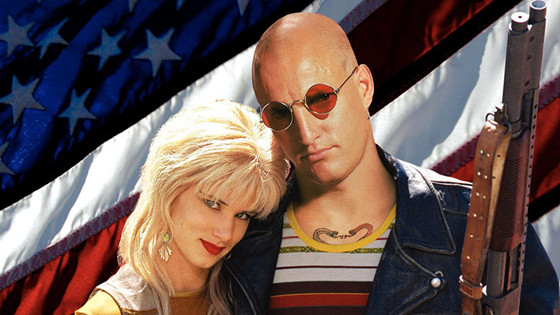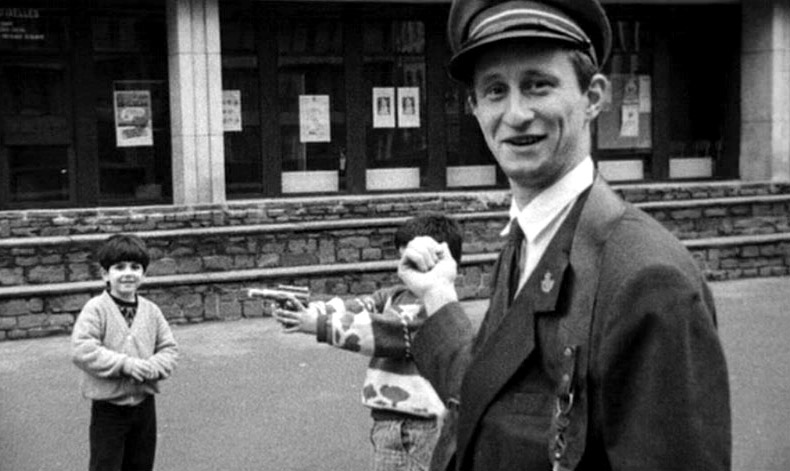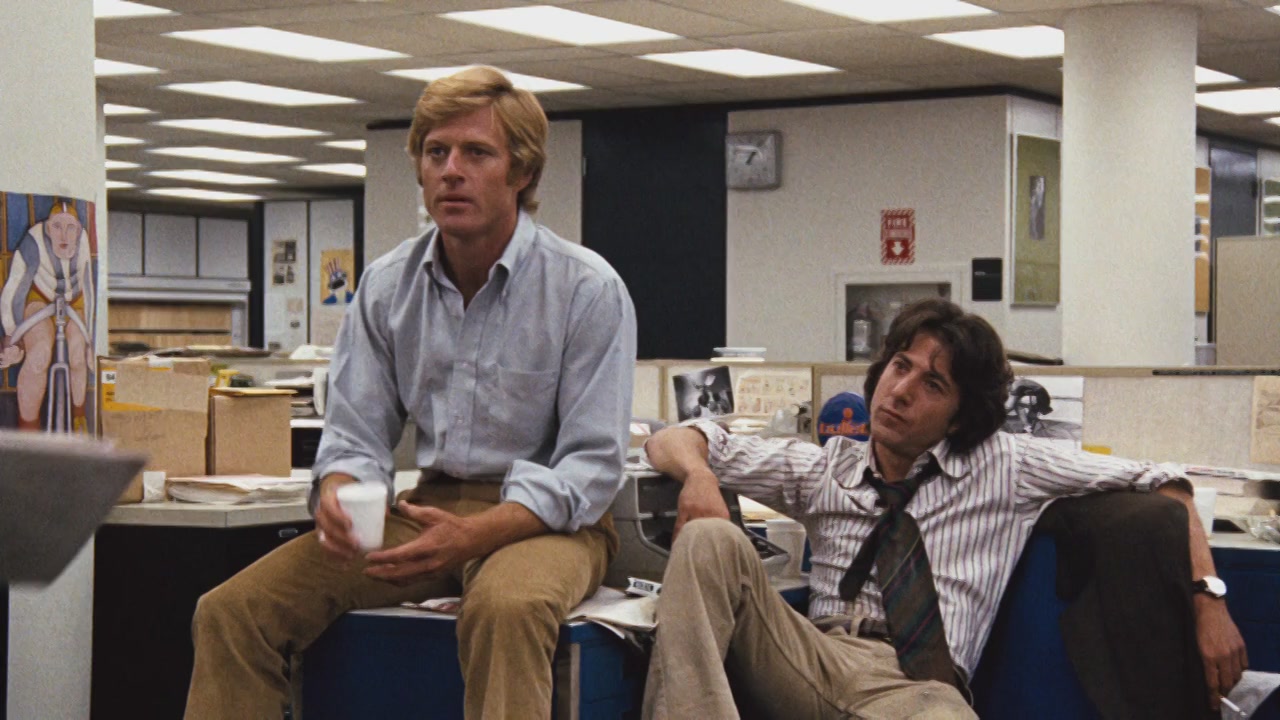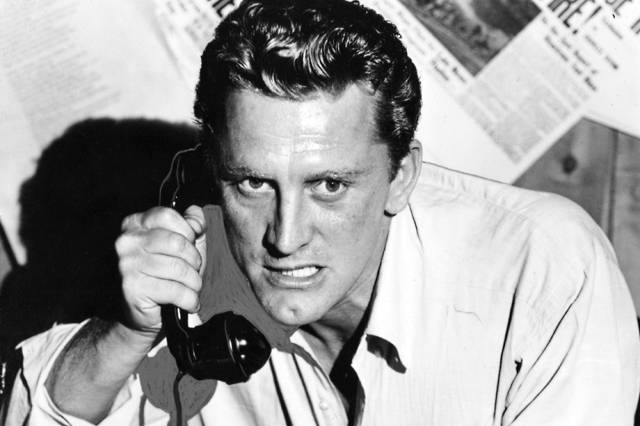5. Nightcrawler (2014)
Speaking of Jake Gyllenhaal, his turn as psychotic amateur cameraman Lou Bloom is a perfect template to examine the immorality and meticulous nature of the media. As a down on his luck guy, Lou spots a horrific car crash yet the first to arrive at the scene are not police, they are cameramen who intend to sell their footage to the news. Lou has found his calling.
But the strive for success and truth drags him further down an immoral and unobjective path. The fact that Lou is a complete sociopath means that he is even less reluctant to disregard what is right in search of a good story, manipulating and interfering with the story to suit his own ends rather than taking an impartial standpoint.
Nightcrawler also questions who we trust with our daily information stream, in this case we have trusted it to a borderline psychopath with no understanding of social traits and a warped moral compass. It is as ironic as it is horrific.
Gyllenhaal may also be giving the performance of his career so far here, with the innovative and atmospheric directorial efforts from Dan Gilroy to paint L.A as a boiling cauldron of activity just waiting to be shaken and observed. It is an intriguing and sometimes disturbing study of both an individual and a larger part of modern society.
4. Natural Born Killers (1994)
Oliver Stone divided audiences and critics like few filmmakers ever had with his controversial 1994 movie. It was branded as glorifying violence and even led a few to blame it for the Columbine shooting five years later. If it did glorify serial killers, then it was intentional to the overall message of the film, a satire of how the media portrays serial killers and inadvertently (sometimes intentionally) glamourizes them and their actions.
The film centres on a pair of murderous, Bonnie-and-Clyde-like, lovers played by Woody Harrelson and Juliette Lewis as they undergo a killing spree across Australia, trailed by tabloid reporter played by Robert Downey Jr. It is undeniably blunt and brutal but it all serves a higher purpose that is only emphasised by its striking visual stylistics and rough examination of the paper thin commitments of both the public and media.
Natural Born Killers is a visceral experience that can sometimes be exhausting, chaotic and extremely provocative. It is also far from subtle, with such a frenzied and psychological shooting style, one can hardly imagine what it would be like if Tarantino himself had directed his script. But regardless, it has a lot to say about the media’s portrayal of criminals in general, and its statement is only growing more relevant.
3. Man Bites Dog (1992)
Dark, satirical and ultraviolent, this Belgian film may paint the least flattering picture of the media out of all these list entries, and that says quite a lot about it immediately. It portrays a serial killer and a film crew that document all of his horrific acts. As their work continues, the film crew loses his sense of morality and objectiveness and even begin to participate in these murderous actions.
Though the violence is often graphic and shown in gruesome detail, it lends itself to the dark sense of comedy that permeates the film. Like other films on this list, Man Bites Dog is critical of how the media draws more attention to crime through its documentation of it, sometimes even siding with the offenders, whether it realises it or not.
It is only made more poignant and clear by the fact that the killer is financing the documentary himself, demonstrating how sometimes coverage of their work is exactly what a killer may be looking for, and by supplying them with that the media could just be feeding the criminals’ own egos and challenging them to continue. Man Bites Dog is a work of stark brutality and infinite complexity that can be as disturbing as it is insightful.
2. All the President’s Men (1976)
It may be easy to forget that this political thriller is simply about the media’s relationship with crime, but for all its notions about changing history and altering the political landscape, All the President’s Men makes the firm point of how this story is essentially just another crime. The moral of the story is that even if it is the most powerful man in the world, a crime cannot be hidden from the public and covered by conspiracy, and it is the role of the media to expose that when no one else will.
Covering the investigative team that uncovered the Watergate scandal, All the President’s Men is intelligent and immensely absorbing despite the torrents of detailed information that it conveys through William Goldman’s superb script and the committed performances of Dustin Hoffman and Robert Redford that provide us with fascinating characters, more frightened about being on the edge of upheaval yet devoted to their cause.
Not only does it offer an enthralling examination of a working newsroom, but it is also a vital reminder of the importance of the media. Equipped with nothing but a notepad, a typewriter and small bits of valuable information, these men changed the world.
1. Ace in the Hole (1951)
Though Billy Wilder was highly suited to his work in the screwball comedy genre, he may have been at his best while cynical and condemning. Ace in the Hole may be his bleakest look at human nature and how exploitative the media can be. The story revolves around a disgraced journalist played by Kirk Douglas that seeks to regain his former success and thinks he has found just the means to do so when he comes across a story concerning a trapped man.
However the journalist begins to manipulative the situation and take unfair advantage of it. He prolongs to work of the Sheriff to free the man, encourages the rescue effort to carry out extra measures and all the while furthers his own career by reporting on and covering every detail of the story.
The films is an escalating depiction of warped morality and is a savage critique of the media’s exploitative nature that was actually met equally harshly by critics at the time and regarded as Wilder’s first failure. However, in subsequent years, it has been reevaluated as a work of cynical brilliance that is even more relevant to today’s society.
Author Bio: Joshua Price considers himself more of a fan that happens to write near insane ramblings on movies and directors like Scorsese, Spielberg, Fellini, Kubrick and Lumet rather than an actual critic and other insane ramblings can be found at criticalfilmsuk.blogspot.co.uk.
